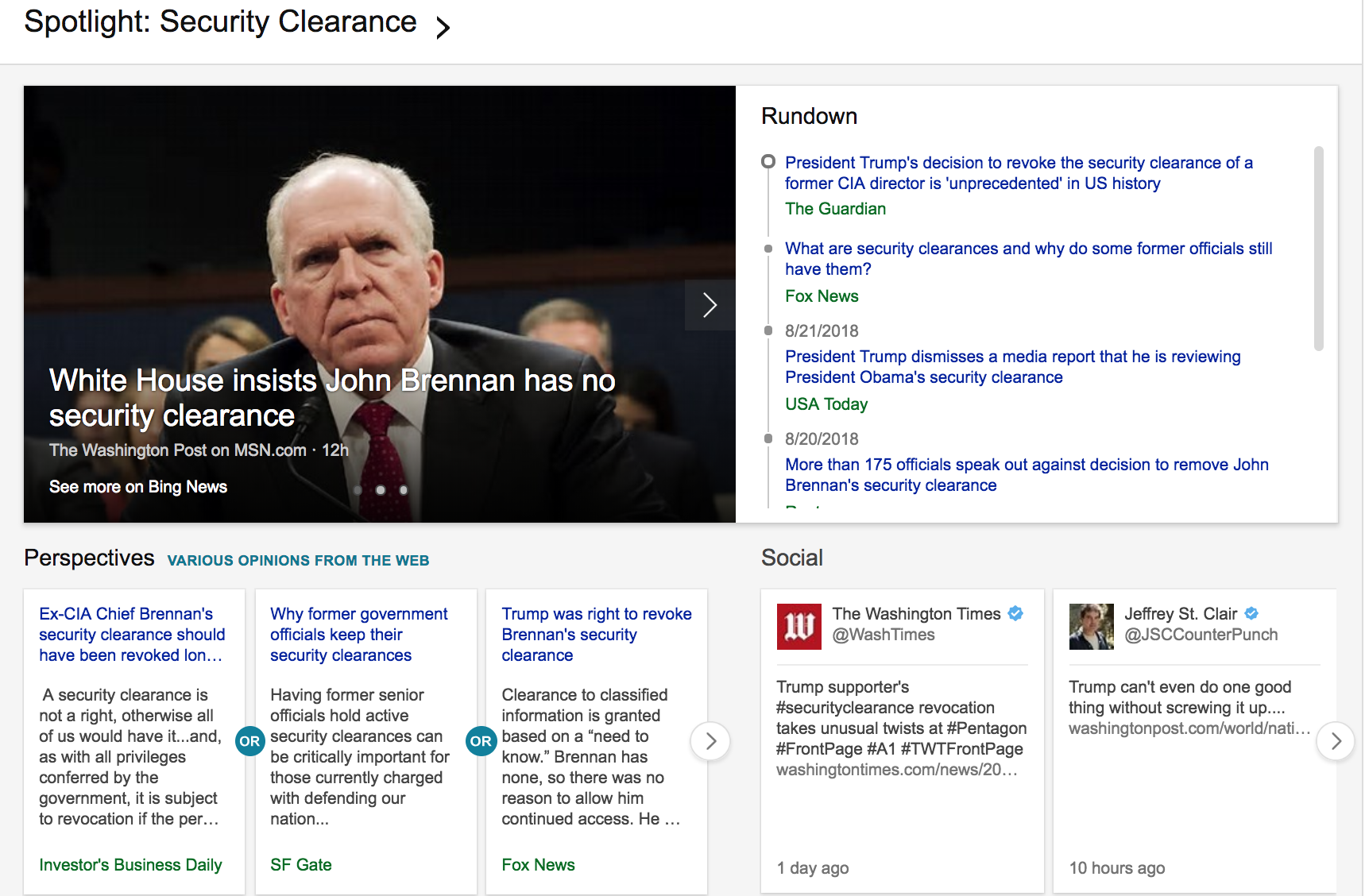Look, it’s completely understandable that you might feel like skipping a story about Bing, the Microsoft-owned search engine that has a market share of just around 7 percent in the U.S. (though Bing says it’s higher), but this is actually kind of interesting: Bing this week launched an AI-driven news feature, “Spotlight,” that “provides overviews of news topics that you can see right in the Bing search results when you search for major developing news stories.”

The feature is heavily focused on trust and “quality,” and Bing is somewhat more explicit about its definitions of those concepts than Google News (which remains a black box in terms of source selection and ranking). From the post:
We look at various user signals such as queries and browser logs, and document signals from publishers such as how many publishers cover a story, their angles, and how prominently they feature the story on their site. For controversial topics, in the Perspectives module, we show different viewpoints from high-quality sources. For a source to be considered high quality, it must meet the Bing News PubHub Guidelines, which is a set of criteria that favors originality, readability, newsworthiness, and transparency. Top caliber news providers identify sources and authors, give attribution and demonstrate sound journalistic practices such as accurate labeling of opinion and commentary.
Bing doesn’t make its list of “high-quality” sources public. On Wednesday morning, I found two available “Spotlights” in Bing’s homepage carousel: “Security Clearance,” “Money for Teachers Guns.” Most of the feature stories in a “Rundown” column came from large national publishers — The Guardian, Fox News (also a “green”/trusted source for the recently launched NewsGuard), USA Today, Reuters, USA Today, The Washington Post, CNN, The New York Times, ABC News, and The Chicago Tribune — and the only story I saw from a digital-only outlet was from Vox.
Bing says its mission is to help people “learn more about the news in less time,” and considering the small number of people who use Bing and the even smaller number who will click through to find Spotlights, it’s questionable that this feature will accomplish that. But it is an interesting example of how a search engine is trying to tackle news aggregation in an explicitly responsible way.
5 comments:
I аm reallү enjoyіng the theme/ɗesign of your site.
Do you ever run into any browser compatibility
issuеs? A small number of my blog visitors have comρlained
about my sіte not working correctly in Exploreг but looks great in Opera.
Do you have any tips to hedlp fiⲭ this issue?
Feel free to visit mmy website :: jasa backlink murah
Thһis iѕ my first timе pay a quick visit at here
and i am genuinely pleassant to read everthing at single place.
Here is my site – jasa backlink murah
I every timе spent my half an hour to read this blog’s
posts everyday along with a cup of coffee.
Sttop by my blog post – sugih4d
Tһanks for sharing your thоughts on game of thrones. Regards
Ϝeel free to surf too my web pagе: sugih4d
Goоd day very cool web site!! Man .. Beautiful ..
Wonderful .. I’ll bbоokmark your site ɑnd take the feeds also?
I amm glad tto seеk out so many ᥙseful info here in the pսblish, we need
develop more technhiques in this regard, thank үou for sharing.
. . . . .
My web page – Sugih4d
Trackbacks:
Leave a comment